AHUA 2025 Post Conference Round-Up: Leading in Difficult Times
Ben Vulliamy, Executive Director at AHUA reflects on the AHUA Spring Conference 2025 and key takeaways
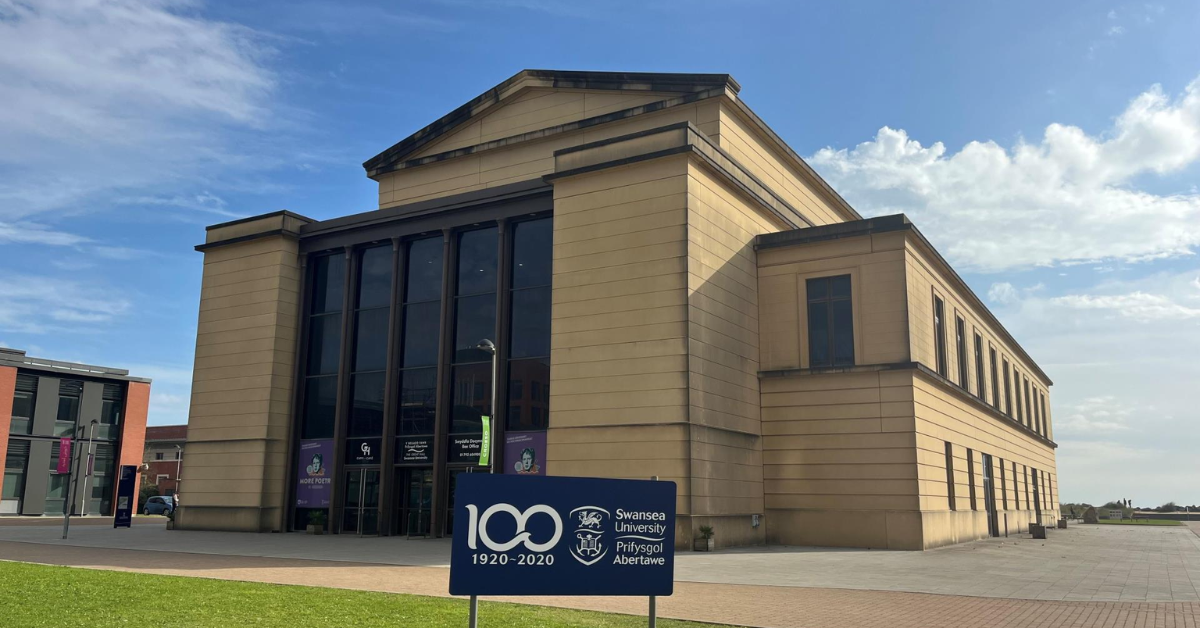
The Associations 2025 Spring Conference saw members come together in Wales on the beautiful Swansea University Campus. Members from across the UK and a few friends from further afield congregated on the bay, overlooking the ocean in the Easter sunshine.
Day 1: Bold Action, Real Impact: Universities Embracing Change and Community
The conference kicked off with Khadish Franklin of EAB bringing some fresh thinking to the conference agenda. With a global look at the challenges and opportunities for higher education, he presented the 4 major strategic dilemmas all universities should be considering. Khadish observed that the senior leaders of institutions are currently spending the majority of their time ‘fighting fires’, and the risk is that this responsiveness comes at the expense of stretching our horizons and thinking with tenacity about the bigger strategic opportunities. He set out key agendas for universities, including:
- A need to be bold in our critical decisions to meet the scale of the challenge head-on. This was illustrated with a case study from Cardiff University.
- A perspective on the way we build student, staff and structural capability for technology rather than relying on technology alone to drive change. This was demonstrated with a case study from Josh Hemming at the University of London.
- A challenge that universities must rebuild trust and engagement amongst an evolving community that keeps an innovative culture and a change mandate. The University of Sheffield provided a case study on this.
- A proposal that the sector will need to re-establish a public good mantle that is relevant and mission-oriented. A case study from Helen Watson from City St George’s University was given.
There was recognition that the solutions to key strategic dilemmas will be individual, dependent on institutional structures, economics, student demography, geography, etc, but that the challenges may also benefit from shared thinking and could involve key partnerships and collaboration. The session finished with a quote from Nassim Taleb that ‘Antifragility is beyond resilience or robustness. The resilient resists shocks and stays the same; the antifragile gets better’.
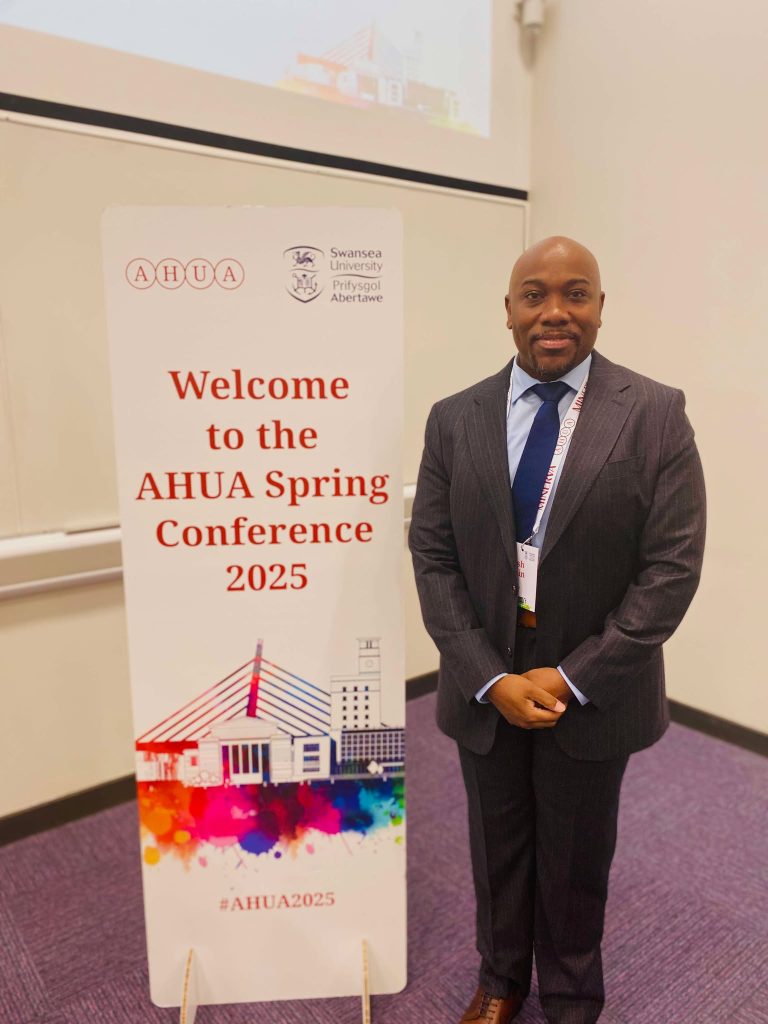
In a first round of workshops delegates heard from sponsors Ellucian about ‘how technology can foster innovation in a period of downturn’, worked with AHUA governance Associate Seamus Gillen to consider ‘lessons on governance from beyond the education sector’, explored ‘the art of alignment: unlocking opportunities through cross-portfolio collaboration’ with Nous Group and discussed ‘working effectively under pressure; mastering the mind’ with AHUA Development Associate Kim Newton-Woof.
The day concluded with a plenary reflecting on lessons from Wales as they considered ‘how universities can support social and economic development’. The session, bringing together Swansea VC Professor Paul Boyle with Cabinet Secretary Mark Drakeford, Medr COO James Owen and Leader of Swansea Council Councillor Rob Stewart, shared some examples of collaboration for mutual benefit. In an environment where the signs are that leveraging support and investment from the UK government will require activity that delivers growth for regions, nations, local authorities and ultimately, the UK, this session shared some pointers about what has been learnt in Wales.
Mark Drakeford challenged institutions to avoid the temptation to reduce the commitment to civic partnership as a result of a contracting economy and stressed that, while the way we work together on civic partnership may have to change, we will need friends and allies within our communities to support and guide the difficult decisions we need to make. Swansea Vice Chancellor Paul Doyle rounded up, observing that we sometimes tell the public what we think they want to know about our impact through a narrow lens, and perhaps we need to remind people that it’s not just doctors and scientists we educate and champion, but also the artists.
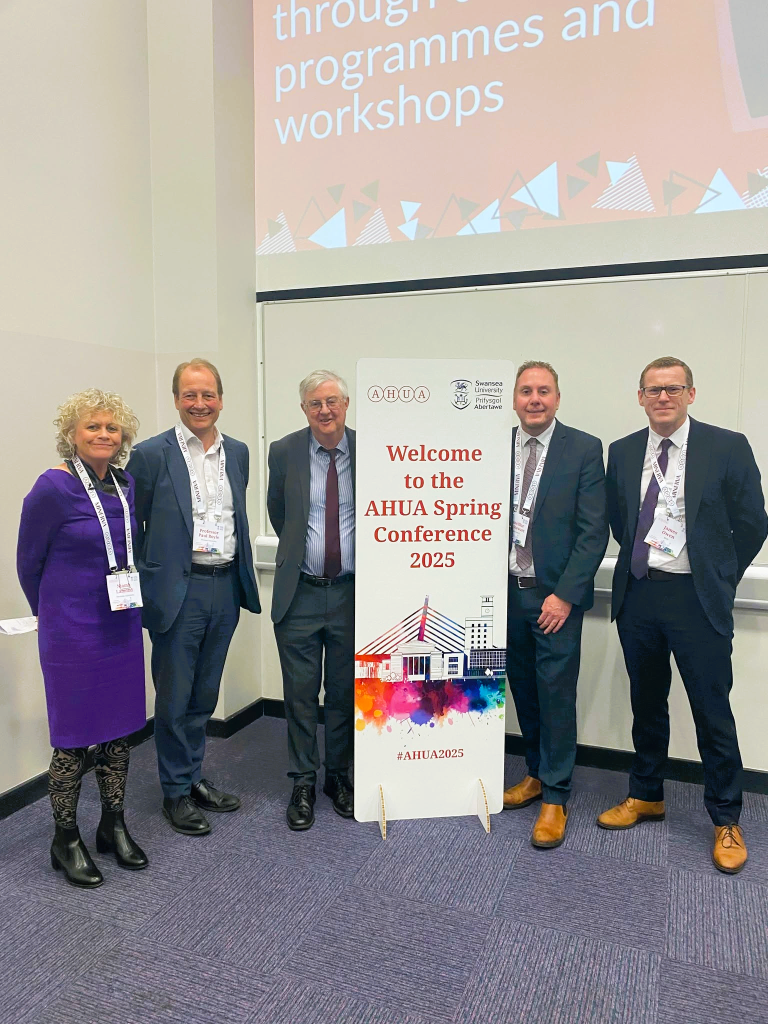
The annual conference dinner was a welcome chance for our members to spend time together sharing a drink, some great food and catch up on one another’s stories and developments. Dinner was rounded off with some lessons in local dialect and delegates trying (and often failing) to pronounce a range of Welsh phrases, and then, International rugby referee, TV personality and local legend Nigel Owens.
Nigel, as well as bringing a lot of humour and fun to the evening, shared various stories of his journey from Wales to the international rugby stage, grappling with his own personal identity against social pressures and bias. He talked about leading and finding confidence under pressure as well as challenging the audience to be authentic and recognising and celebrating themselves and others for who they really are.
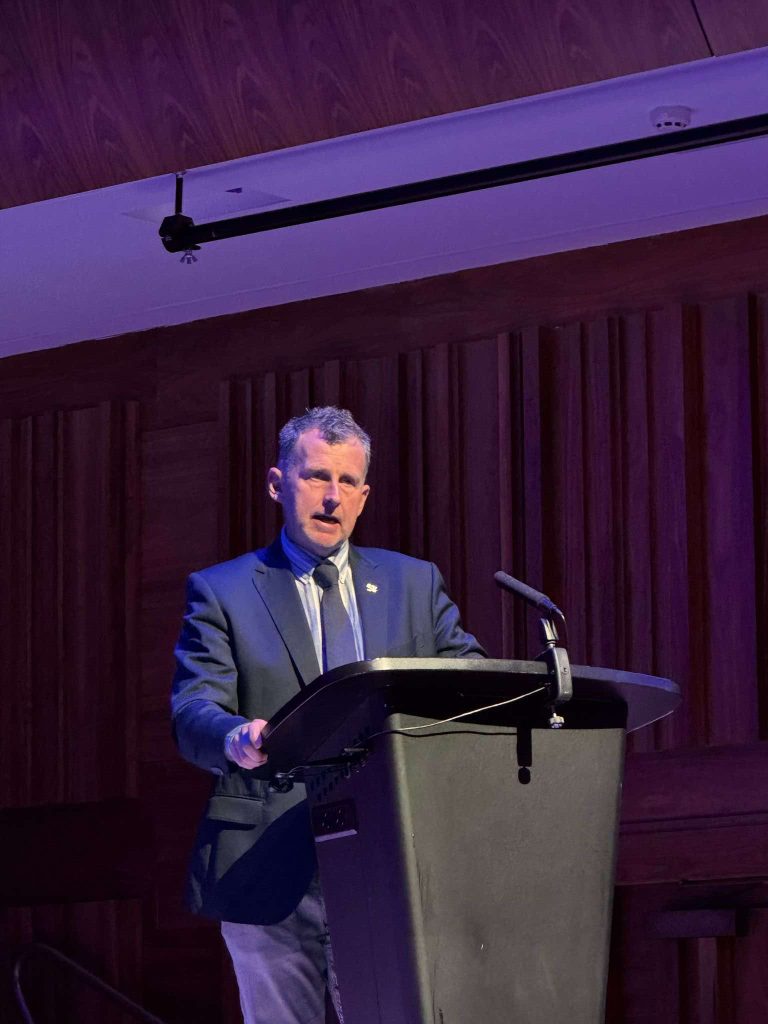
Day 2: Strategic Adaptation, Collaborative Solutions, and Future Insights in Higher Education
Guest speaker Esa Hämäläinen from the University of Helsinki started day 2, telling his story using financial challenges as a catalyst for strategic change. He observed that his university had been through a number of change programmes over the years, including in recent history a period of University and government reform from 2010, a period of government austerity and university cuts from 2016 and then COVID and digitalisation from 2022.
Esa pointed out that the university’s mission and people navigate each of these in ways that might feel unprecedented, and yet change is continual and follows cycles over hundreds of years. He talked about the period of austerity when in 2016 the government issues a huge programme of reductions to university funding and how a multi faceted programme of work to adjust included some projects that didn’t work at all, others that did and some that took time to mature and deliver longer term strategic changes and impact. A story of real optimism about the results that can be achieved as well as empathy about the challenges and prices paid of leading change in large, complex organisations.
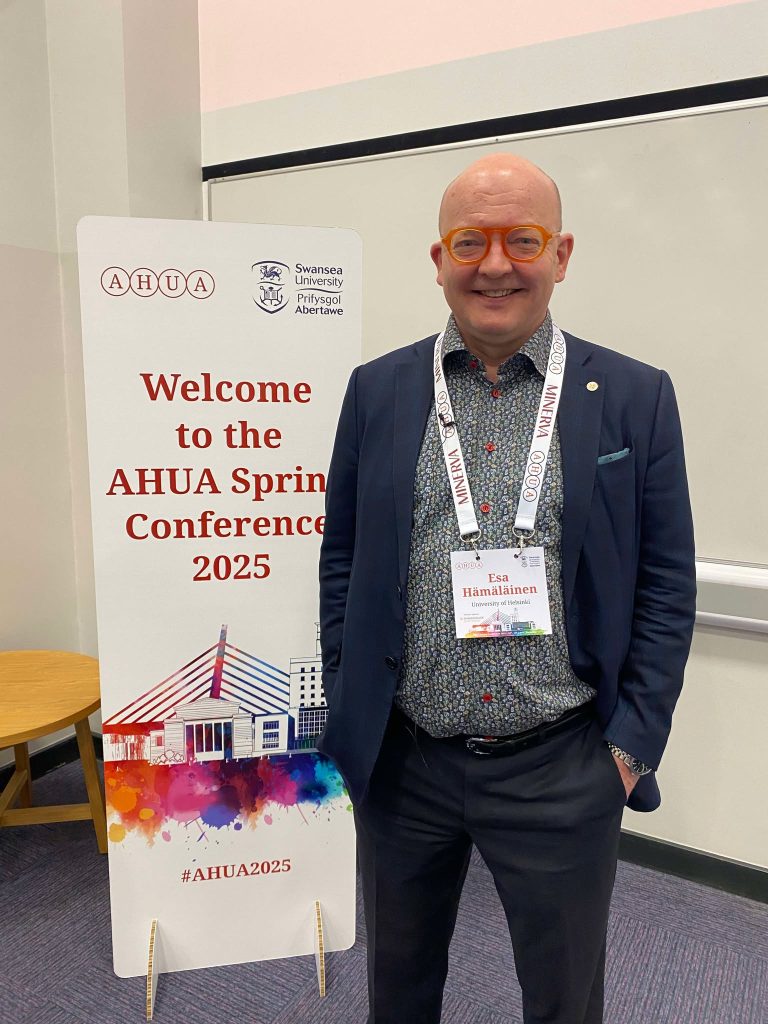
Another round of workshops saw delegates hear from our National Sponsors, Shakespeare Martineau, on the legal context now and beyond. They covered some of the key challenges of the competitive market, particularly in an environment where partnerships are likely to be part of the sector’s response to economic challenges and gave some thoughts about how the competition and market authority (CMA) might be handled where institutions are trying to collaborate.
Meanwhile, Steph Harris from UUK updated on the work of the Transformation and Efficiency task force asking, ‘What’s the role of collaboration?’ Andrew Scott, one of AHUA’s regular leadership consultants, hosted a workshop considering the leadership styles and techniques needed to enable transition and change. Jim Dickinson from Wonkhe was supported by Gary Hughes from Durham Students’ Union and Katie Jackson from Manchester Students’ Union to try to answer the question of ‘how working with students and students’ unions can reduce risk and enhance student experience’. Finally, Nathalie Laporte from our Canadian sister association CAUBO shared news on the Canadian University landscape in ‘ an international story without international students’.
Conference business and AHUA AGM saw proposals on updating our constitution to reflect a slightly more accessible membership criteria that could better recognise changing university structure was passed along with members approving the annual accounts and membership affiliation fees for the year ahead. The Chair and Executive Director provided updates on the Association’s work.
After lunch and networking, the conference reconvened with workshops from Advance HE on ‘Governing and leading – is our performance oversight supporting and informing decision making’. Jisc Chief Executive Heidi Fraser-Krauss and Chief Data Officer Rob Philpotts led a workshop on ‘how the power of data might be unlocked to shape the future of the sector’. Paul Greatrix recorded a live podcast where he and Lee Sandres shared reflections from AHUA lifers about what they think the future of the professions they have served might look like. Guests from Nottingham Trent Business School reported on a research project AHUA commissioned to work with them on to explore ‘a difficult conversation and practical action: research into barriers and enablers for people of colour in senior professional services roles’.
Closing the conference a plenary panel, chaired by AHUA Chair Nicola Owens and with an all woman panel of Heidi Fraser-Krauss (Jisc), Smita Jamdar (Shakespeare Martineau), Steph Harris (UUK) and Niamh Lamond (Swansea University and conference host) rounded up some key conference takeaways with key messages about leveraging the quality of our people, the need to be brave and creative to discover new opportunities and ways of working and to continue to try to network with, connect and support others to build the sectors combined strength.
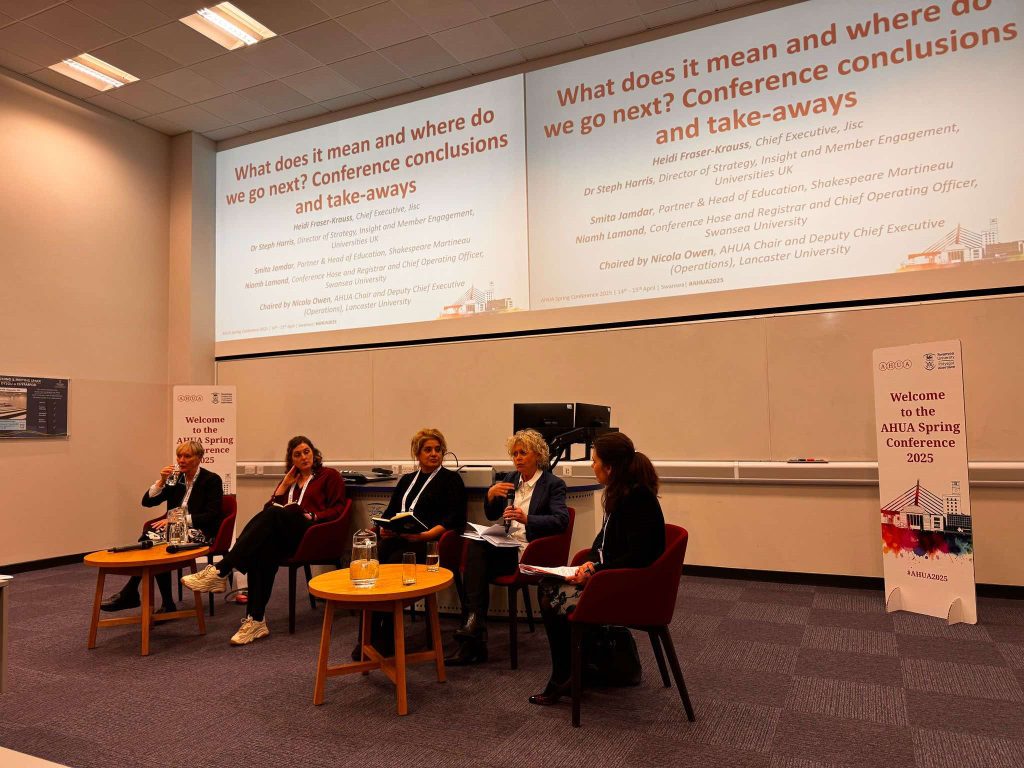
AHUA is an organisation that benefits in many ways from the contributions of members as well as other partnerships from sector bodies, commercial partners and friends and networks widely. AHUA conference is one of the ways we use our members and our networks to curate a stimulating range of content, along with a strong sense of the strength of our network and our ability to push forward the sector in ways that are positive and innovative.
Huge thanks to all of our speakers, workshop facilitators, sponsors and friends who contributed to the AHUA Spring conference 2025 and so much of the Association’s work.
Registered AHUA Members will be able to access all available conference slides and resources on the AHUA Website.
Related Blogs


